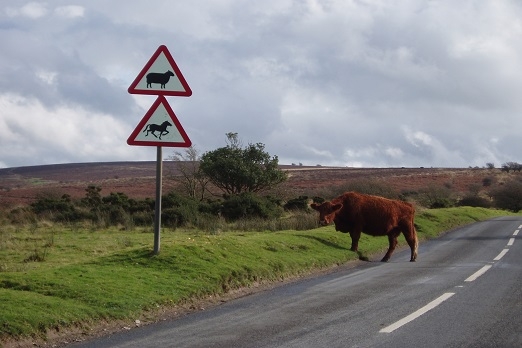Currently CPRE Somerset considers that there is too much unnecessary travel along rural roads. Cars are travelling far greater distances at greater speed than in the past. With modern cars and open rural roads, many people now commute between West Somerset and Taunton and even Bristol in great comfort. Children are ferried great distances to schools at the other end of the district rather than attending their local school.
The cost of travel has decreased over the last decade. The situation appears to be getting worse with people travelling for longer distances at greater speed in modern cars that make commuting to Bristol or Bath from the remoter parts of Somerset, possible in comfort.
There is a movement to restructure services, creating larger county or regional facilities in place of local services. The need for affordable housing, caused by rural house price inflation and shortage of housing stock also has a relationship with commuting distances.
Our landscape now seems to be dissected by fast roads where cars travel at or above the speed limit and safe crossing is difficult. This psychologically breaks up the countryside into isolated parcels and creates false boundaries to character areas.
Our view
Changing attitude is difficult. Attempts to impose speed limits on the A358 though Bilbrook and Washford area were received with public opposition. A change in law or attitude (in the way that drink driving is now looked down upon) would seem to be the only way slow down traffic, however Somerset CPRE consider that traffic calming opportunities do exist at a local level and putting these in place need not be expensive. We will try to:
•Resist policies that encourage the need for more or longer travel journeys.
•Call for lower national speed limit. This will reduce CO2 emissions, encourage local food and services and discourage commuting and possibly reduce demand for affordable housing. There will be calls that slowing down traffic will hinder business. We reject such claims and consider that any negative economic effect will be outweighed by positive benefits.
•Encourage a cultural change that requires motorist to drive carefully so as not to intimidate residents, pedestrians and other road users.
•Discourage policies that encourage travel long distances from their place of work or school.
•Manipulate the road environment so that drivers are encouraged to drive slowly and with care. Use techniques such as, removing (or not renewing) road markings (with the exception of cats eyes that react to cars headlights). Traffic-calming and such measures taken to reduce road speed should be as unobtrusive as possible making use of natural features of the road wherever possible.
•Encourage policies that slow down traffic in the open country as well as settlements.
•Policies should not be area specific. Policies such as highways in Protected Landscapes (AONBs and National Parks) should be avoided.
•Discourage “road improvement schemes”. These tend to allow traffic to travel at greater speed.
•Discourage antisocial driving – high speed driving of cars and motorbikes. Monitor known problem locations and Identify known antisocial drivers.


